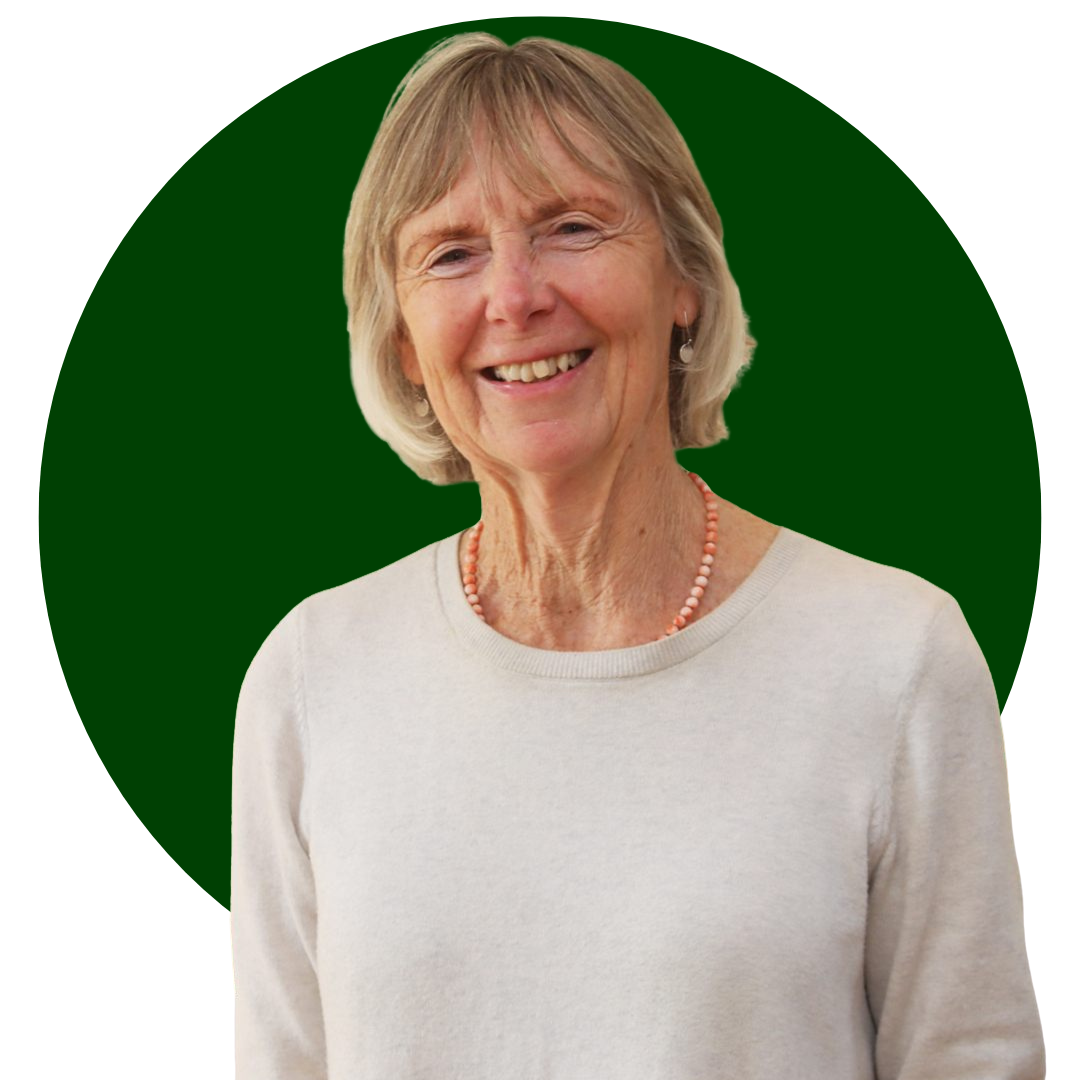
Foundation News
Q&A with Community Foundation for Northern Ireland Trustee, Jane Wilde CBE
28 Nov 2024
Jane Wilde CBE
Jane trained in medicine and public health. She was the founding Director of the Health Promotion Agency for Northern Ireland, the precursor of the Public Health Agency, and the first Chief Executive of the Institute of Public Health set up to promote cooperation across the island of Ireland. She was a founding member of the Northern Ireland Women’s Coalition, a cross community political group, and took part in the all party talks which led to the Belfast Agreement.
How did you get involved with the Community Foundation for Northern Ireland?
I’ve been aware of the Community Foundation and its vital work since the 1970s, and have seen how it has adapted to changing circumstances in Northern Ireland. I feel at its core, the Foundation has always been committed to supporting local communities, with a strong emphasis on social justice, poverty reduction, and community development. I had the opportunity to become more involved when I was asked to chair the £12 million Lottery-funded programme Space and Place, facilitated by the Foundation. Following this I was very fortunate to become a Trustee of the Community Foundation in summer 2019 and Chair of the Grants and Impact Committee in Autumn 2019.
Tell us more about the Space and Place Programme.
This initiative brought together several key partners, including the Northern Ireland Housing Executive, the Rural Community Network, NI Environment Link, Groundwork, and the Public Health Agency. The goal was to encourage applications for funding to restore or repurpose underused buildings or contested spaces in local communities. The idea was to create shared spaces that would unite people from different backgrounds, ages, and genders—transforming GAA grounds, orange halls, and local parks into hubs for wider community engagement.
The programme placed a strong emphasis on addressing local needs and fostering partnership-based approaches. It was incredibly rewarding to see the projects come to life and witness the positive impact they had on people’s lives, helping communities come together and thrive.
Covid 19 impacted on everyone and on all organisations. What impact did Covid 19 have on Grant Making?
Just after I became Chair of the Grants and Impact committee it became clear that the onset of COVID-19 was going to have a huge impact on both communities and how we worked. We knew that swift action was necessary and that we would be able to support the emergency efforts at pace. As a result we were able to respond with investment of over £4million in emergency funds, followed by over £32 million in covid response funds. We recognised that local communities were best positioned to identify what was needed during the initial emergency phase. Whether it was coordinating food and medicine deliveries, facilitating phone calls to stay connected, or offering Zoom calls and mental health classes for young people, we focused on meeting immediate needs as they were emerging.
What was truly inspiring was how local groups responded with such creativity and resourcefulness, developing innovative projects tailored to their own communities. By trusting the communities to understand what was needed and what would work, we were able to distribute funding to hundreds of groups, so that they could make a real difference. It was a busy time as a Trustee, but one that really helped remind me of the impact that communities coming together to address societal needs can make. Without such efforts, many people would have been more isolated, and without such agility in the way we worked as a Foundation, the funding would not have been able to get to where it was needed most as well as it did.
How would you describe the Foundations approach to grant making?
We launched our new grant making strategy in April 2023 which outlines our commitment to supporting communities. These commitments and values around agility, flexibility, being relational, inclusive and risk taking were further developed as a result of our covid response and the success of our approach. We recognised the value in being more open and trusting as a funder, which enabled our grantees to do what they do best.
We work closely with communities and people with lived experience to ensure that our funding processes are as straightforward and efficient as possible. As a funder we are committed to making grants in a way that reflects the realities facing charities.
I have seen the Foundation and their approach to grant making change over the years. It has been a privilege to have been a part of the thinking and to support communities right across Northern Ireland.
How has your background in public health informed your work with the Foundation?
It has been interesting and exciting to be involved with the Trustees and staff in shaping The Community Foundation’s new strategy, and I am delighted that well-being is one of our key objectives. We were able to support the Department of Health to distribute £30million to projects supporting carers, cancer patients and their families, and people with poor mental health. With my background in public health, I’ve always understood well-being in the broadest sense, recognising that good mental and physical health, as well as reducing the significant gaps between people from different social backgrounds, are deeply influenced by social, economic, and environmental conditions.
Of course, the health and social care sector plays a vital role in supporting individuals, and when it functions well, it serves as an anchor in society. However, its impact can be limited if we are only treating people and then sending them back into the very conditions that contributed to their poor health in the first place. That’s why the Foundation’s strategy is focused on taking action across a wide range of sectors, addressing the root causes of poor health and well-being.
We understand that lasting change requires a comprehensive approach—one that goes beyond just healthcare to include the social determinants of health, such as housing, education, employment, and community support. By working together across sectors and supporting innovative local initiatives, we can create healthier, more resilient communities and tackle the huge inequalities that persist.
What has been the most rewarding part of your experience volunteering with the Foundation?
Over the last five years I have been part of distributing over £57 million through 4700+ grants. I honestly am so honoured to have played a part in this.
Visiting the projects or programmes we fund, meeting the people who benefit from them, and speaking with those who work tirelessly behind the scenes has really brought home just how much people are struggling with significant challenges. At the same time, it has highlighted the incredible dedication of volunteers who provide essential support during the most crucial times. Each visit to these programmes and projects and seeing the care and compassion is humbling and inspirational.
It’s such a privilege to be involved with CFNI alongside other Trustees, the members of the Grants and Impact Committee and the exceptional staff. We have such a diverse range of people, all of whom bring their own life experiences and areas of expertise, and I really enjoy hearing the different perspectives all of which inform our work. I have had many opportunities to work with inspiring people and I have immense respect for those who are leading and working within communities to tackle some of our society’s most pressing challenges.
Contributing to the progress on our strategy, our goals and more recently our new impact framework has been interesting, insightful and inspiring. It makes me pause and reflect—what would we be like as a society without their commitment and compassion? These are the people who create positive change, and their work is extraordinary.

